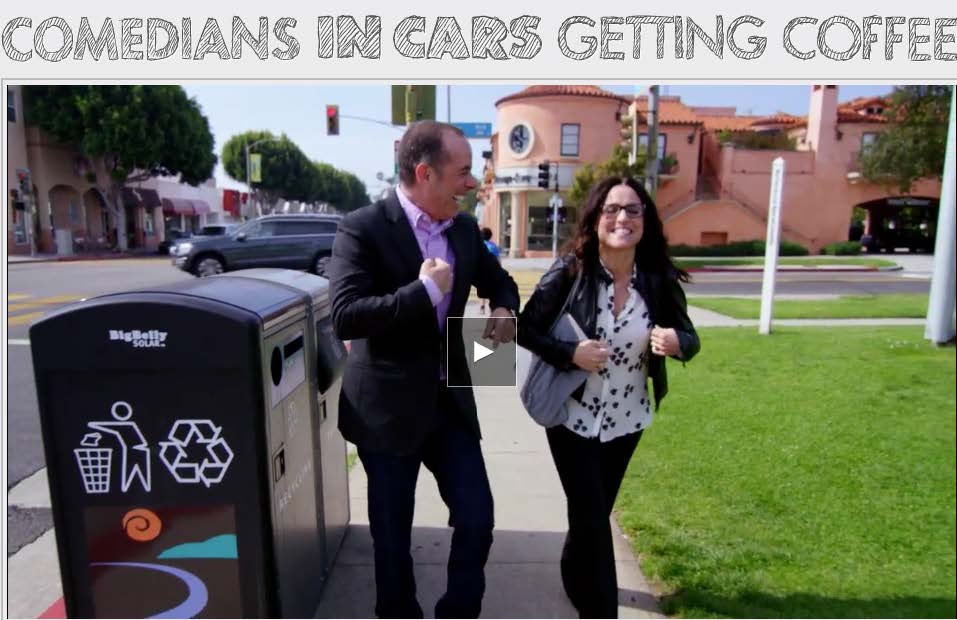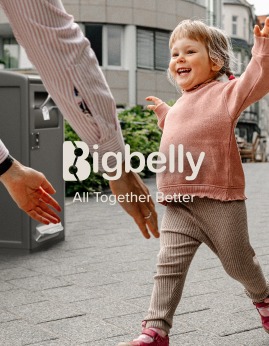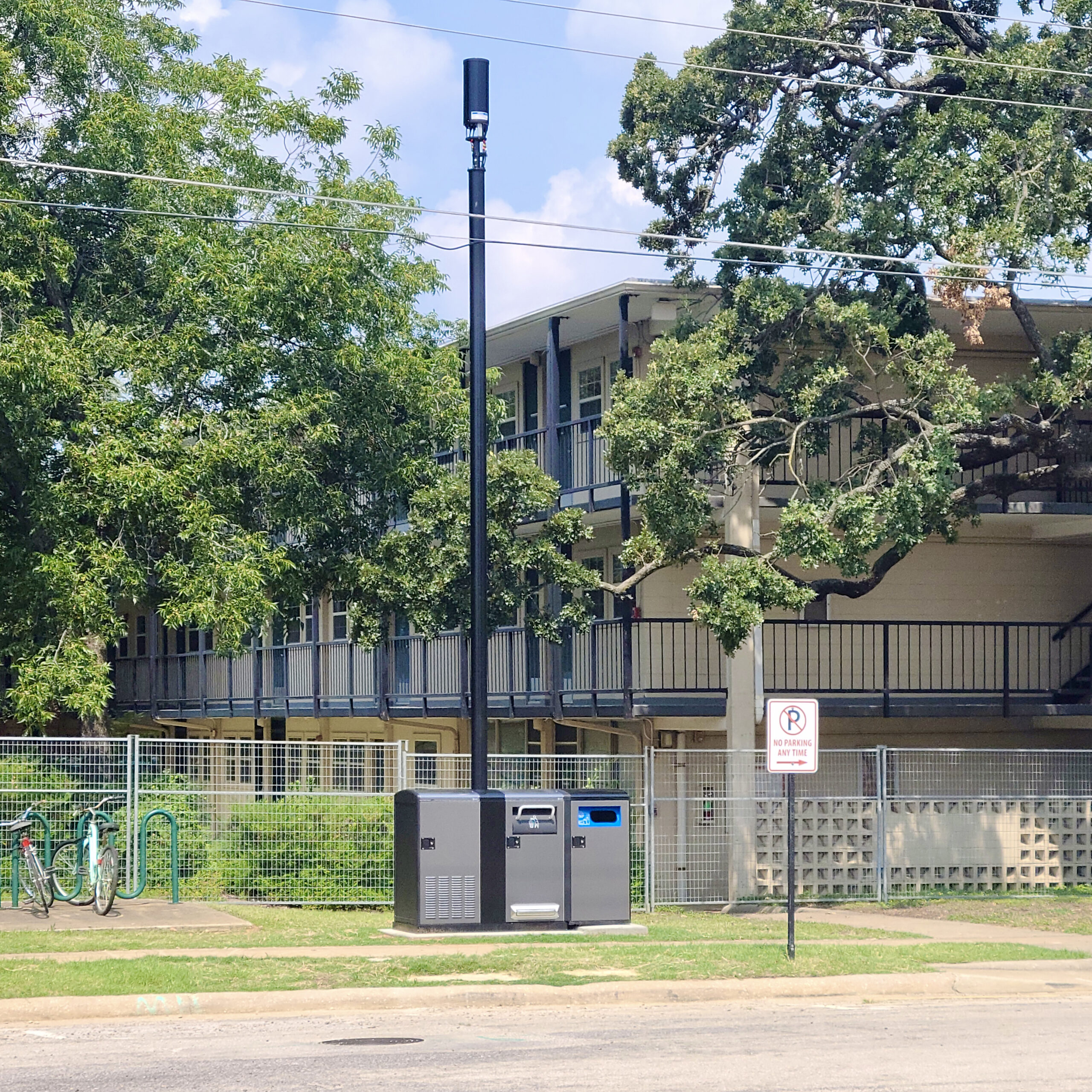Jerry Seinfeld and Julia Louis-Dreyfus were laughing it up during a recent episode of Comedians in Cars Getting Coffee. Their banter was not at all focused on urban blight but as they walked the streets you cannot help but notice how clean the streets were. Beautification and keeping public spaces clean is a top priority for most cities and towns. However, it is not always an easy task. The conditions and issues of urban waste management vary from one municipality to the next and often from one neighborhood to another just down the block.
Today’s towns generate large amounts of waste and most have adequate facilities and services to manage it. However, challenges with insufficient collection and improper disposal exist. Waste management affects every person living, working and playing in our urban environments. In addition to affecting daily lives and individuals’ health, the trash impacts the urban environment as well. This problem grows every day, due mostly to the types of waste created and its inability to disintegrate.
What is needed?
Clear policies and planning focused on improving day-to-day life for citizens and business. Municipalities planning today for tomorrow’s urban growing pains are looking at ways to manage proper waste disposal that includes greater diversion of waste from landfills and disposal methods that limit environmental and health impact. Communities must weigh the adverse risks of improper disposal on our urban and global environments.
Waste management can draw community participation and create jobs. New technologies and equipment are improving efficiency of urban waste management. This reduces the amount of waste sent to landfills and, subsequently, the tipping fees charged to towns. Today’s throwaway society has shifted waste management to disposal. Movements to educate citizens and businesses on the benefits of minimizing waste to improve lives and frankly industrial competitiveness are growing.
Promoting community-based approaches to waste management helps sustainable city development. Engaging residents and local businesses at a grassroots level is more effective than launching government directed programs, rules, and regulations that lack ways to build community involvement. To reduce the environmental threat and protect wildlife from trash that lasts for decades, many communities plan and host annual cleanup and recycling campaigns. In addition to removing dangerous trash from the waste stream, such efforts serve to educate citizens on the dangers posed by hazardous materials.
The end goal?
At its core, municipal waste management encompasses household waste, non-hazardous waste from businesses (industrial, commercial, and institutional), public space waste, and clean up waste (yard, market, street cleanings). It includes all phases of waste collection, recycling, treatment, and disposal. The primary goals of waste management are to:
- Protect environmental health
- Promote the quality of cities and towns
- Support economic efficiency and productivity
- Generate employment and income
There is a growing focus on ‘zero waste’- developing new materials from recycled materials. Cultivating human behaviors and lifestyles that encourage less waste production through greater conscious efforts around reducing, reusing, and recycling will contribute significantly to the success of more aggressive and effective waste management programs. Educating consumers on the impact trash has on the environment and health can positively affect such efforts.
It’s no joke…everyone can make a difference.
Considering the ‘three Rs’ (reduce, reuse and recycle) is a great first step in strategically improving urban waste management. It establishes an order of preference for managing trash and recyclables. In addition to reducing the consumption of natural resources, individuals can make choices for improved environmental health.
As individuals, there is a lot you can do to help your city or town expand its waste management efforts and plan to support urban growth. Some of these actions you might take at home while others are more involved and focused on collaborating with town officials.
- Push for public recycling: When planning any city center’s waste management program, push for recycling to be part of the solution. When recycliing is coupled with landfill waste streams, waste seperation behavior is quickly and easily learned, making a lasting impact on the environment.
- Encourage your city or town to invest in sustainable technology: It’s easy to show the impact of sustainable assets on not only the local community but also mother earth.
- Create private-public partnerships to provide services: Housing, waste management, etc.
- Consider your purchases: Limit packaging; think twice about whether it’s a want or a need. What’s the life expectancy? Can it be disposed of responsibly?
- Make caring for city green space key to urban planning: Plant trees, Improve public waste and recycling efforts, etc.
- When shopping, use your own bags, buy products in returnable bottles: Reduce, reuse and recycle by living a “zero waste” lifestyle.
- Keep plastic, tin and glass containers intact to protect reuse
- Take a good look at your trash: Are you recycling what you can? Repurposing when possible? Properly disposing of dangerous materials at home like pharmaceuticals, chemicals and paint?
- Kick start a community clean-up project: Align it with the opening of your local lake or beach, Earth Day, or community service days.
- Leave no trace: Even if it’s not your trash, collect and dispose of trash responsibly.




